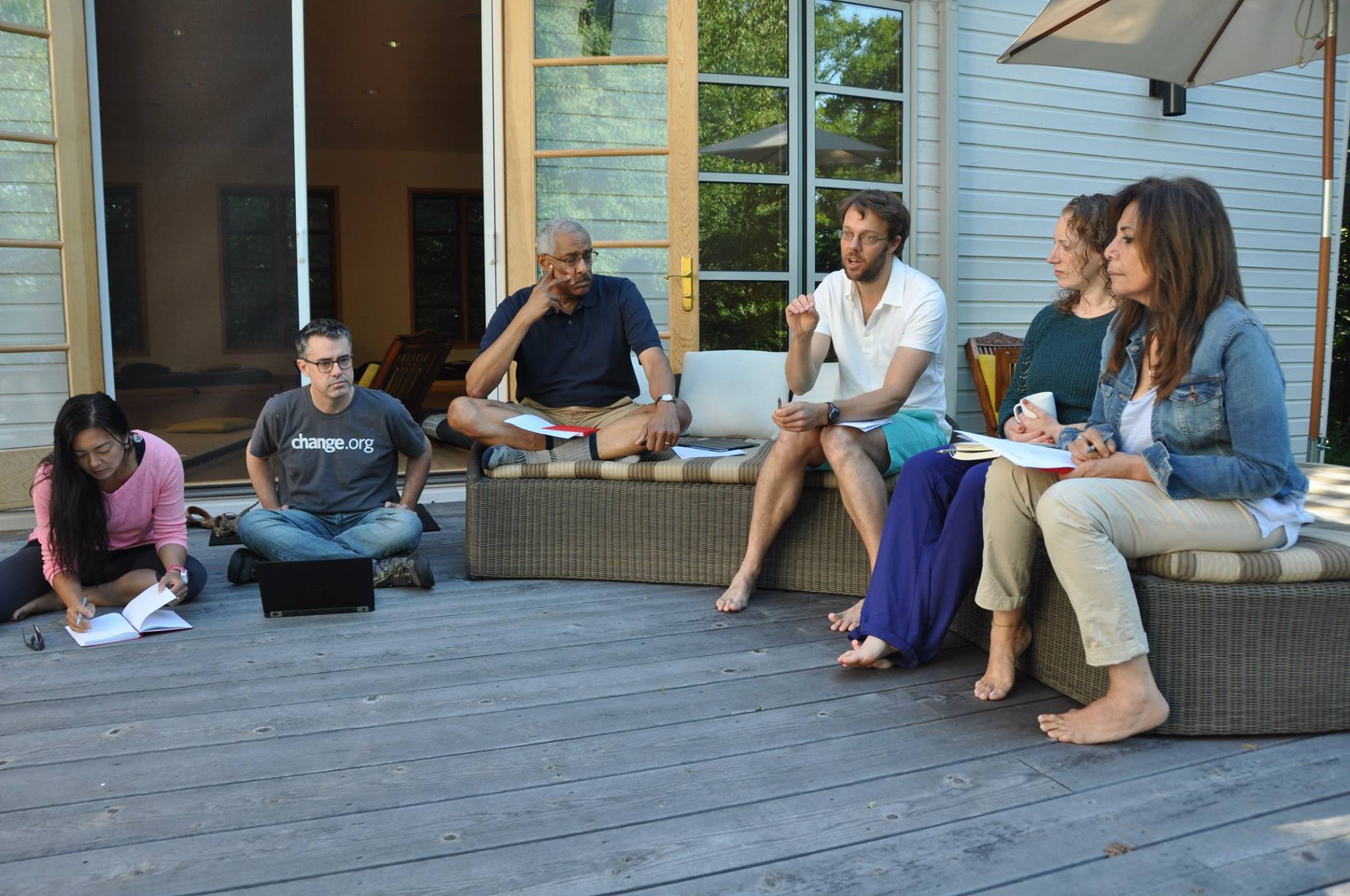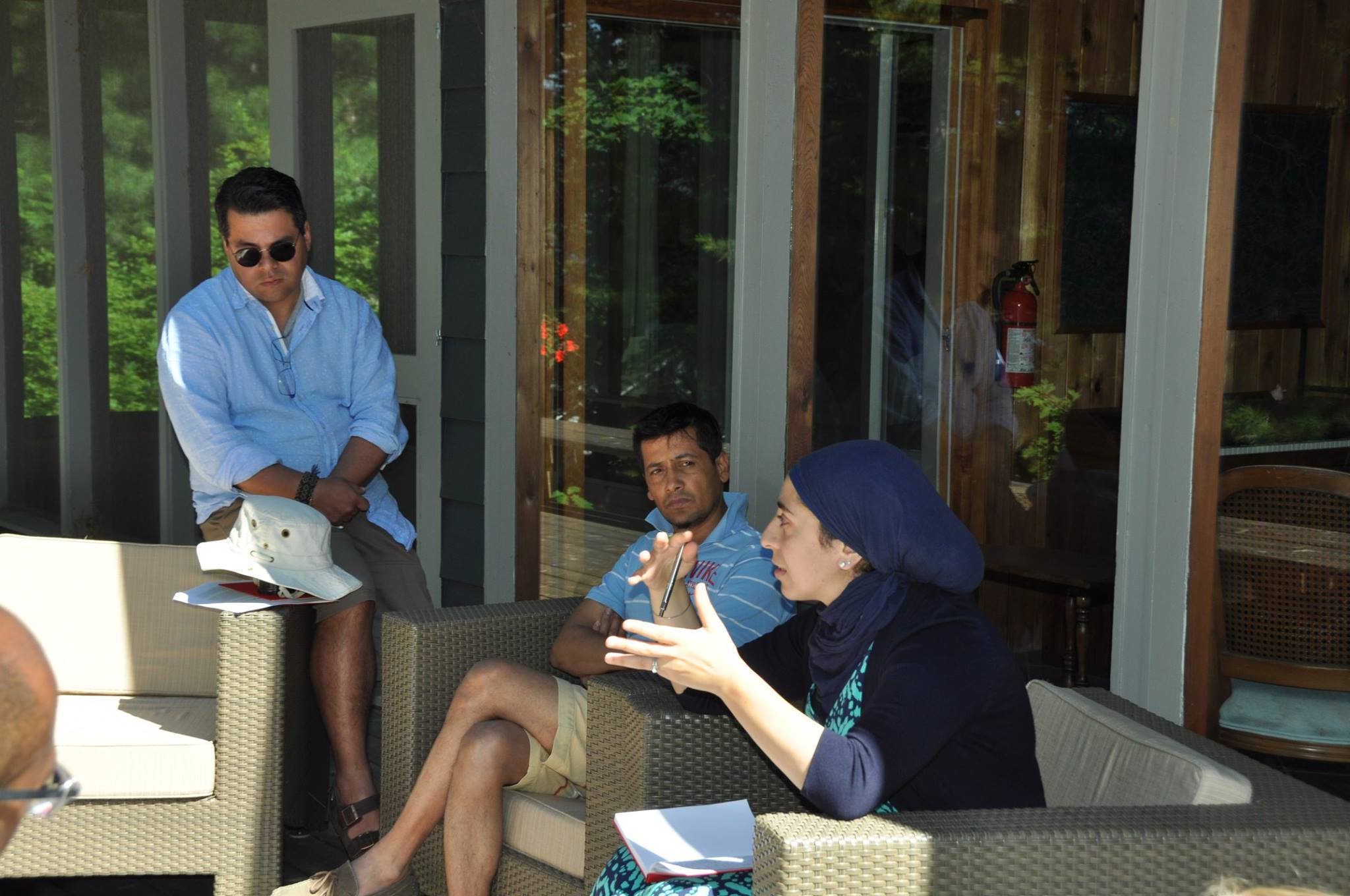NEWS
November 16, 2016

IN BRIEF
By: Blair Glencorse, Executive Director of the Accountability Lab and a winner of the BMW Foundation Responsible Leaders Award. This summer, the BMW Foundation kindly convened a group of activists, thinkers, practitioners and policy-makers on Wasan Island in Canada for an Impact Weekend on behalf of the Accountability Lab (photos here). The retreat was transformational- as a young, growing organization often overwhelmed with day-to-day activities, it provided the perfect space for all of us at the Lab to rethink and strategize. It was also well-timed- a period of reflection after four years of our work to build accountability in countries like [...]
SHARE
 By: Blair Glencorse, Executive Director of the Accountability Lab and a winner of the BMW Foundation Responsible Leaders Award.
By: Blair Glencorse, Executive Director of the Accountability Lab and a winner of the BMW Foundation Responsible Leaders Award.
This summer, the BMW Foundation kindly convened a group of activists, thinkers, practitioners and policy-makers on Wasan Island in Canada for an Impact Weekend on behalf of the Accountability Lab (photos here). The retreat was transformational- as a young, growing organization often overwhelmed with day-to-day activities, it provided the perfect space for all of us at the Lab to rethink and strategize. It was also well-timed- a period of reflection after four years of our work to build accountability in countries like Liberia, Nepal and Pakistan; and three months before our recently concluded annual Board meeting.
So what did we learn and what have we done with that learning to help us improve? And what insights from the incredible discussions on the island might be useful for other non-profits or social enterprises?
First, fully understand the context. This allows you to better identify where the gaps in the eco-system exist and where you can add the greatest value. It is surprising how often organizations (including ours) do not fully map the actors, relationships and opportunities within a given space or completely understand the risks of specific areas of work. Nor do they organize and share this information effectively within the organization or more broadly. In realizing this, among other things, we have now developed a new, in-depth context selection matrix which will help us investigate, choose and monitor where we work and where we can add the greatest value going forwards.
Second, become a learning organization. While the Lab has been focused on learning for a while now, this has largely been in terms of external learning in relation to our programs. The discussions on Wasan Island helped us to understand that we need to better codify and support our internal, staff learning. We also realized that we need to integrate learning into our support as part of our core model- the Accountability Incubator. Since July we have put in place staff learning plans and developed training modules around learning for our partners, which are already helping us improve.
Third, measure impact in meaningful ways. Although it is obvious, it is worth repeating that this starts with really defining the problem you are trying to solve. We realized we had not yet explained this clearly enough to ourselves or other people- and many organizations face a similar challenge. Since then we have developed a much more concise and targeted problem statement and Theory of Change. We also realized that we need to better communicate our impact and clearly understand who our impact measurement partners might be going forwards. To address these challenges, we have, for example, been working on better story-telling around our work and we hosted a round-table in Nepal with the learning community as a way to begin to map like-minded organizations.
 Fourth, know your role in the movement. This relates to understanding the context- but requires a deeper self-awareness, cognizance of why people identify with your organization and ideas for how that can be used to leverage changes in behavior. It also means tapping into larger initiatives, institutions or platforms that exist within your “space” to maximize your role in creating positive change. For us, that has meant we have worked to find creative ways to gather rapid feedback; sign up to additional multi-stakeholder initiatives where we can add value; and consolidate relationships with universities (to build-out our story-telling fellowship, for example).
Fourth, know your role in the movement. This relates to understanding the context- but requires a deeper self-awareness, cognizance of why people identify with your organization and ideas for how that can be used to leverage changes in behavior. It also means tapping into larger initiatives, institutions or platforms that exist within your “space” to maximize your role in creating positive change. For us, that has meant we have worked to find creative ways to gather rapid feedback; sign up to additional multi-stakeholder initiatives where we can add value; and consolidate relationships with universities (to build-out our story-telling fellowship, for example).
Fifth, identify when and how to scale. As my colleague Narayan has pointed out, there is often an obsession with scale in terms of breadth (more people!) rather than depth (working more coherently with existing partners). Our discussions on Wasan Island helped us to appreciate that our better understanding of context and eco-systems will allow us to figure out how to scale, and with whom, to make the most impact. Since July, we have looked at how other organizations have grown; outlined the possible ways we can scale (partnerships, replication, franchising); and are looking at new approach to scale our Integrity Idol campaign through partnerships in Indonesia and elsewhere.
Coming out of the impact weekend, we thought hard about all of this; connected with all of the participants again individually and collectively; and conducted workshops with our country teams to ensure their inputs and ownership. We used these conversations as the basis for the new Accountability Lab strategy, which the Board reviewed last month and will guide our work for the next 3 years. We are extremely proud of the progress we’ve made in the past few months and the path we are taking; and grateful to the BMW Foundation for the opportunity to gather such critical inputs on Wasan Island. There is nothing like a remote island retreat to help you learn, improve and strategize!
Follow Blair and the Lab on Twitter @blairglencorse @accountlab
